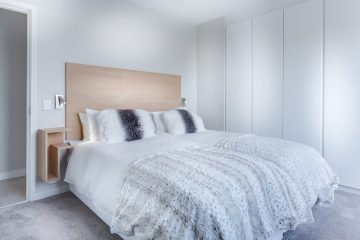It’s sometimes shown in cartoons as sawing logs, a metaphor that’s not dissimilar to the grumbling, grating, and occasionally unpleasant sound of snoring. Snoring can be annoying, particularly to a spouse or anybody else in the vicinity, but it’s not unusual. Snoring affects over half of all individuals at some time in their life. Snoring occurs when the air you inhale vibrates the tissues in the back of your throat.
You might snore for various causes, including a cold or allergies. It may not affect your sleep in certain situations, but it may leave you with a dry mouth or scratchy throat when you wake up.
Contents
How To Know If You Are Going Through Primary Snoring Or Sleep Apnea?
If you’ve ever been pushed by your spouse while sleeping or even woken yourself up because of snoring, you know how aggravating it can be. Because there are several forms of snoring, it’s critical to figure out what’s causing it before deciding on the best treatment option.
Primary snoring is snoring that isn’t caused by sleep apnea. Numerous reasons, including: can cause it.
- As you become older, your neck muscles may become more relaxed.
- Conditions affecting the nose or throat, such as a deviated septum (when the wall dividing the nose is forced to one side) or swollen tonsils
- Sleeping position, particularly on your back, is essential.
- Use of alcohol, other depressants, or muscle relaxants in the hours leading up to or during sleep
- Obesity, which causes poor muscle tone and extra tissue around the neck
Some of these reasons for primary snoring are beyond your control, while others are more under your control. To avoid snoring, consider sleeping on your side or avoiding alcohol use before bedtime. Snoring can also indicate sleep apnea, and a physician can help you stop snoring to reduce your chance of developing specific health problems.
When Is Your Snoring A Sign Of Sleep Apnea?
Medical issues can cause sleep apnea, obstructing your airway as you sleep. Given are a few causes of sleep apnea:
- Obesity
- Large tonsils
- Hypothyroidism, for example, is an endocrine condition.
- Stroke or muscular dystrophy are examples of neuromuscular diseases.
- Failure of the heart or kidneys
- Cleft lip and palate are two genetic disorders.
Snoring caused by sleep apnea differs from primary snoring in that it has more dangerous repercussions. If you snore while sleeping, you may have sleep apnea.
- For more than 10 seconds, pause while breathing.
- Breathe slowly and deeply.
- Choke or gasp
The Final Thoughts About Sleep Apnea!
If you are going through sleep apnea, it’s vital to maintain a healthy lifestyle, including dietary adjustments and activity. These can assist in lessening the intensity of your sleep apnea symptoms.
Your doctor may need to monitor you regularly to ensure your therapy functions correctly. Your body needs sleep to rejuvenate, regenerate, and stay healthy. Your health and well-being are jeopardized if you don’t get enough sleep. You — and those around you — can sleep better for a more rested tomorrow with easy lifestyle adjustments and therapy.







